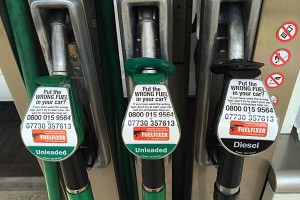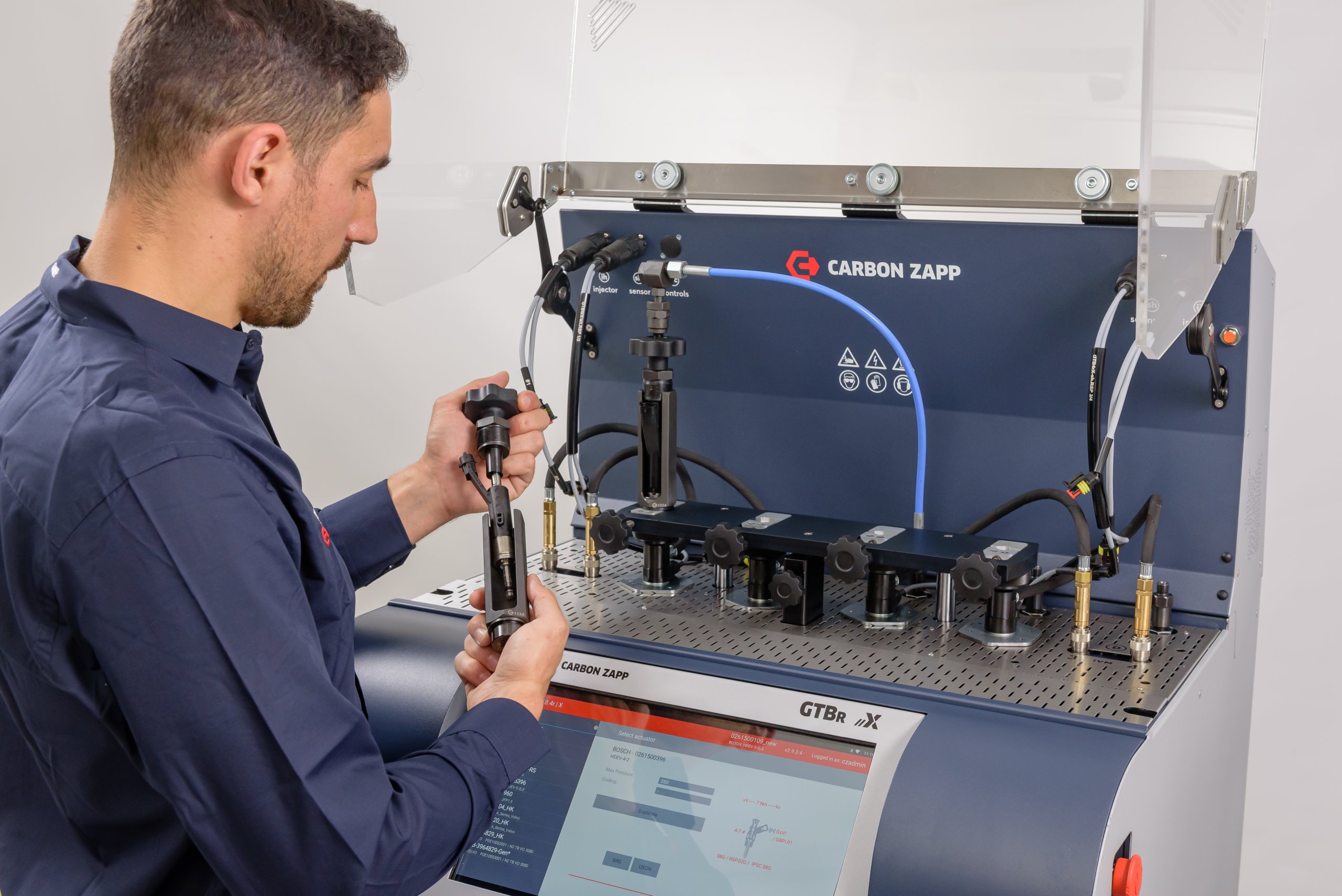Emissions from Petrol Vehicles Emissions from petrol cars have been dramatically reduced by the introduction of catalytic converters, which oxidise pollutants such as CO to less harmful gases such as CO2. When compared to petrol cars without catalysts, catalyst cars have much lower CO, HC and NOx emissions, at the expense of CO2 emissions, which increase due to the oxidation of carbon monoxide to CO2. As a consequence of this, a catalyst car will also use slightly more fuel and become less efficient. However, despite these improvements, petrol cars with catalysts still produce more CO and HC than diesel cars, although exhaust emissions of NOx and particulates are much lower than diesel cars. In fact particulate emissions from petrol cars are so low that they are not routinely measured.
Emissions from Diesel Vehicles Diesel fuel contains more energy per litre than petrol and coupled with the fact that diesel engines are more efficient than petrol engines, diesel cars are more efficient to run. Diesel fuel contains no lead and emissions of the regulated pollutants (carbon monoxide, hydrocarbons and nitrogen oxides) are lower than those from petrol cars without a catalyst. However, when compared to petrol cars with a catalyst, diesels have higher emissions of NOx and much higher emissions of particulate matter.
Cold Start Emissions from cars are greatest when an engine is cold. On a cold day a petrol car may take up to 10km to warm up and operate at maximum efficiency; a diesel car may only take 5km. Consequently, diesel cars produce less unburned fuel during a cold start, which will result in lower emissions of carbon monoxide and hydrocarbons. Diesel cars could make a significant impact on air quality in urban areas where most cold starts occur, especially when it is considered that a catalyst on a petrol car would take several minutes to reach its operating temperature. Overall, diesel cars emit less hydrocarbons, carbon monoxide and lead pollution than petrol cars, but produce more noxious gases and significantly more particulates.
Despite much debate over which car, petrol or diesel, is cleaner, weighing up the advantages and disadvantages is not easy. For example, diesel cars have been promoted, as they produce less CO and HC on average when compared to petrol cars, and they have greater fuel economy producing less CO2 per km. However recent health concerns about particulate matter have given diesels a less environmentally-friendly image, as have the higher emissions of nitrogen oxides compared with petrol cars. As a comparison, petrol cars produce virtually no particulate matter, take longer to warm up, produce more carbon dioxide per mile on average, and emissions of the regulated pollutants are higher.
Cleaner Petrol and Diesel A method of pollution reduction currently being utilised involves the use of cleaner petrol and diesel. It is cheaper to improve conventional fuels than to use many of the alternatives and no investment is needed for new storage tanks and service stations. Ultra-low sulphur petrol is now widely available in the UK. City Diesel City diesel is a petroleum based lower emission diesel developed in Sweden but now available in many European Countries including the UK. Exhaust emissions from vehicles fuelled with city diesel compare favourably with exhaust emissions from equivalent vehicles fuelled with conventional diesel. The main benefit of city diesel is that its combustion reduces particulate emissions by 34 – 84% depending on engine type, duty cycle, test basis and type of particulate measured. An additional benefit of city diesel is that it is a low sulphur fuel, which is necessary for the optimum running of oxidation catalytic converters.
Conclusion
To produce a cleaner environment for all to live and work in, the development of alternative, cleaner fuels is essential. To encourage the use of the fuels, competitive prices combined with good marketing techniques are required.
Diesel Engines Cleaner than Petrol?
26th March 2020





